In the serene hills of Bandarban, a quiet revolution is taking place which is fueled by the humble cassava plantation. Through the collaborative efforts of World Vision Bangladesh (WVB) and the PRAN-RFL Group, cassava contract farming is transforming the lives of countless farmers, bringing hope and prosperity to the region. One such success story is that of Ajay Tangchangya, a 46-year-old farmer from Khaiya Para.
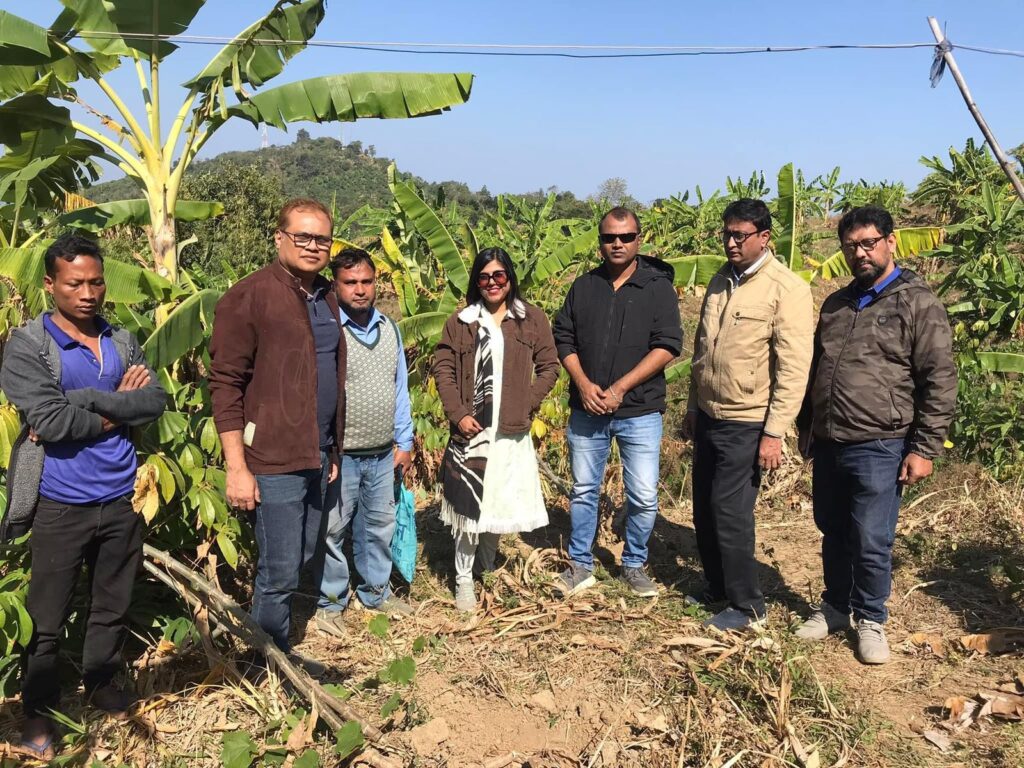
Ajay, like many in his community, relied on traditional jhum cultivation, which provided a meager income and limited opportunities for growth. The financial strain made it difficult for him to provide for his family, including nutritious food for his children. However, things began to change in June 2021 when Ajay joined the Bandarban Sadar Area Program, spearheaded by World Vision Bangladesh. Through this program, he received extensive training on modern agricultural techniques, income generation, financial management, and market engagement. These efforts significantly boosted his vegetable production and income.
In April 2023, Ajay took a bold step by joining the Cassava Contract Farming program, a collaborative initiative between WVB and PRAN-RFL Group. With an interest-free loan of Taka 51,000 and seedlings provided by PRAN-RFL Group, Ajay began cultivating cassava on 3 acres of land. The training and guidance he received from both organizations equipped him with the knowledge and skills needed for successful cassava farming.
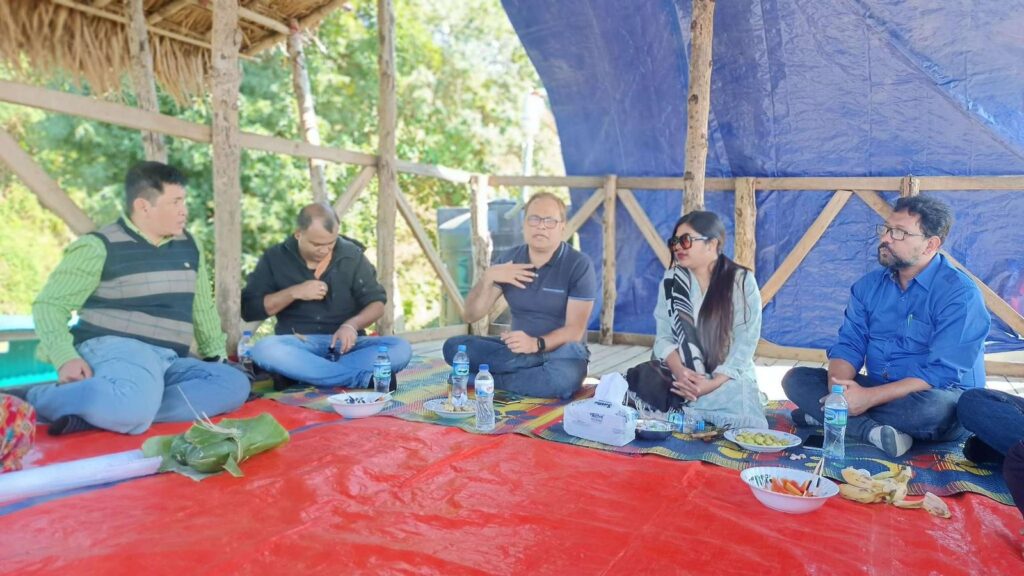
Despite facing challenges such as doubts about market access, fair pricing, climatic issues, and water shortages, Ajay’s perseverance paid off. He successfully cultivated cassava on 2.40 acres of land, yielding an estimated 21-22 tons of cassava tubers. The expected net profit of Taka 80,000 is a testament to the program’s success. Encouraged by this achievement, Ajay expanded his cassava cultivation to 5 new acres in 2024, inspiring 15 neighbors to follow suit, leading to 80 acres of land now dedicated to cassava farming.
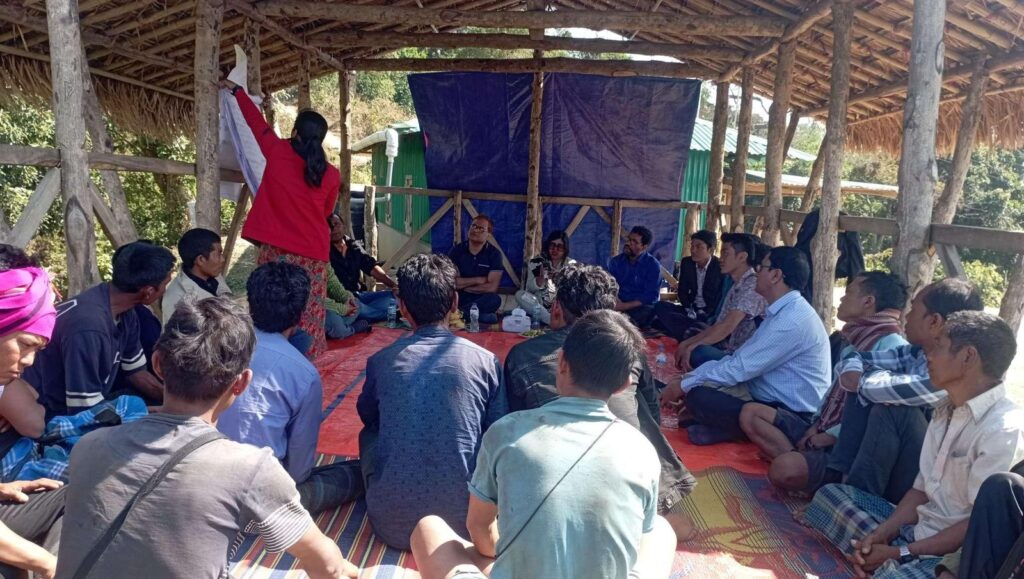
The beauty of this contract farming model lies in its holistic approach. PRAN-RFL Group not only provides planting materials and loans to farmers but also ensures the purchase of the harvested cassava at fair prices. This commitment to the community has instilled confidence among farmers, who now see a sustainable future in cassava farming. Moreover, the favorable conditions for cassava cultivation and the availability of fallow land have highlighted the immense potential for commercial cassava farming in the region.
World Vision Bangladesh has played a pivotal role in facilitating this transformation. By collaborating with PRAN-RFL Group, WVB has created an environment where farmers can thrive. The program addresses critical challenges, provides necessary resources, and offers continuous support, ensuring that farmers like Ajay can overcome obstacles and achieve success.
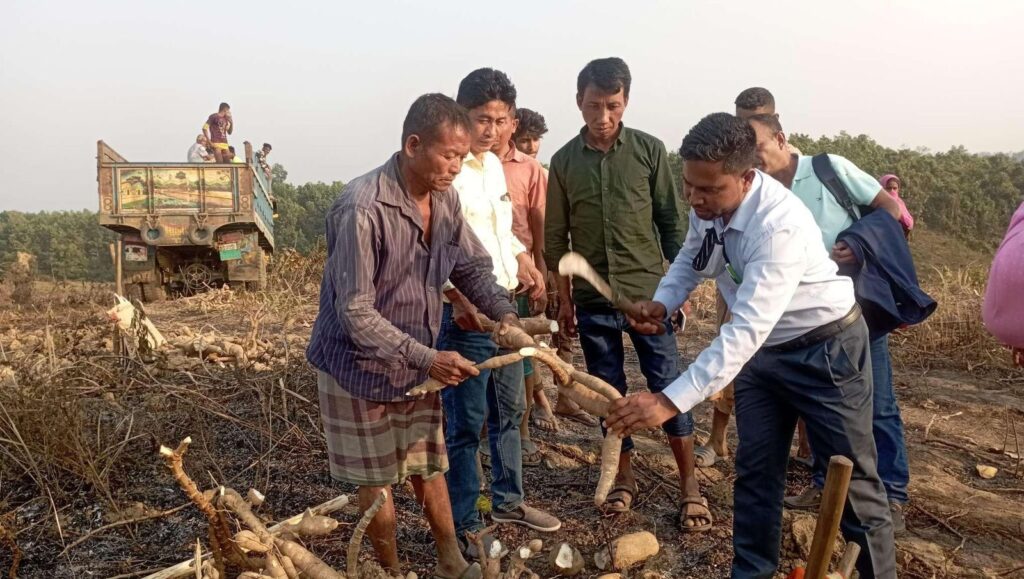
Ajay Tangchangya’s story is just one among many. There are numerous other beneficiaries who have experienced significant improvements in their livelihoods thanking to this initiative. These farmers are now receiving fair prices for their produce, which was a rarity in the past. The guaranteed purchase of cassava in bulk by PRAN-RFL Group has alleviated market uncertainties, enabling farmers to focus on cultivation without fear of financial loss.
The collaboration between World Vision Bangladesh and PRAN-RFL Group is a shining example of how development and private sectors can work together to create lasting change. By combining resources, expertise, and a shared vision, they have empowered communities, improved livelihoods, and set a precedent for future initiatives.
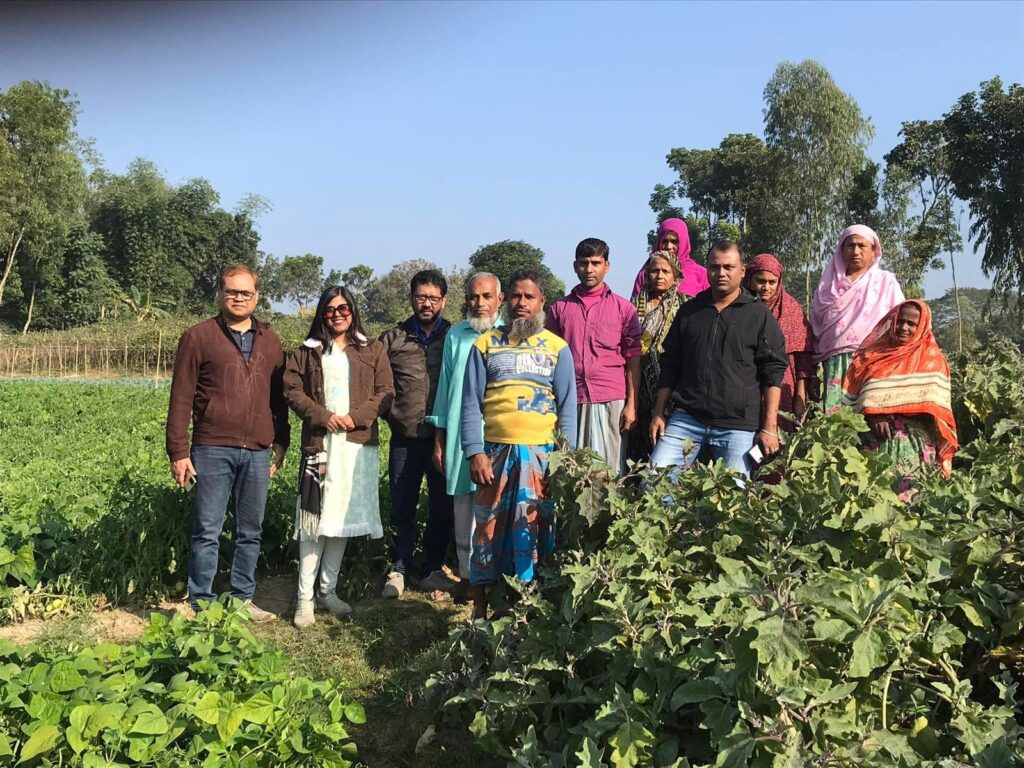
As we celebrate the success of cassava contract farming in Bandarban, it is crucial to recognize the importance of such partnerships. They not only address immediate needs but also pave the way for sustainable development, ensuring that communities can continue to prosper in the long term. The engagement of the private sector in the development sector of an emerging economy like Bangladesh’s is crucial for sustainable growth and poverty alleviation. By leveraging resources, expertise, and market access, private companies can drive innovation and efficiency, creating opportunities for economic advancement and social progress. Partnerships between the private sector and development organizations, such as the collaboration between World Vision Bangladesh and the PRAN-RFL Group, demonstrate the potential for transformative impact. These collaborations not only uplift local communities but also contribute to the broader national agenda of economic resilience and inclusive development fulfilling the Sustainable Development Goals (SDGs) and supporting the government’s ‘Vision 2041′ which aims to end absolute poverty and to be graduated into higher middle-income status by 2031, and eradicate poverty on way to becoming a developed nation by 2041.


